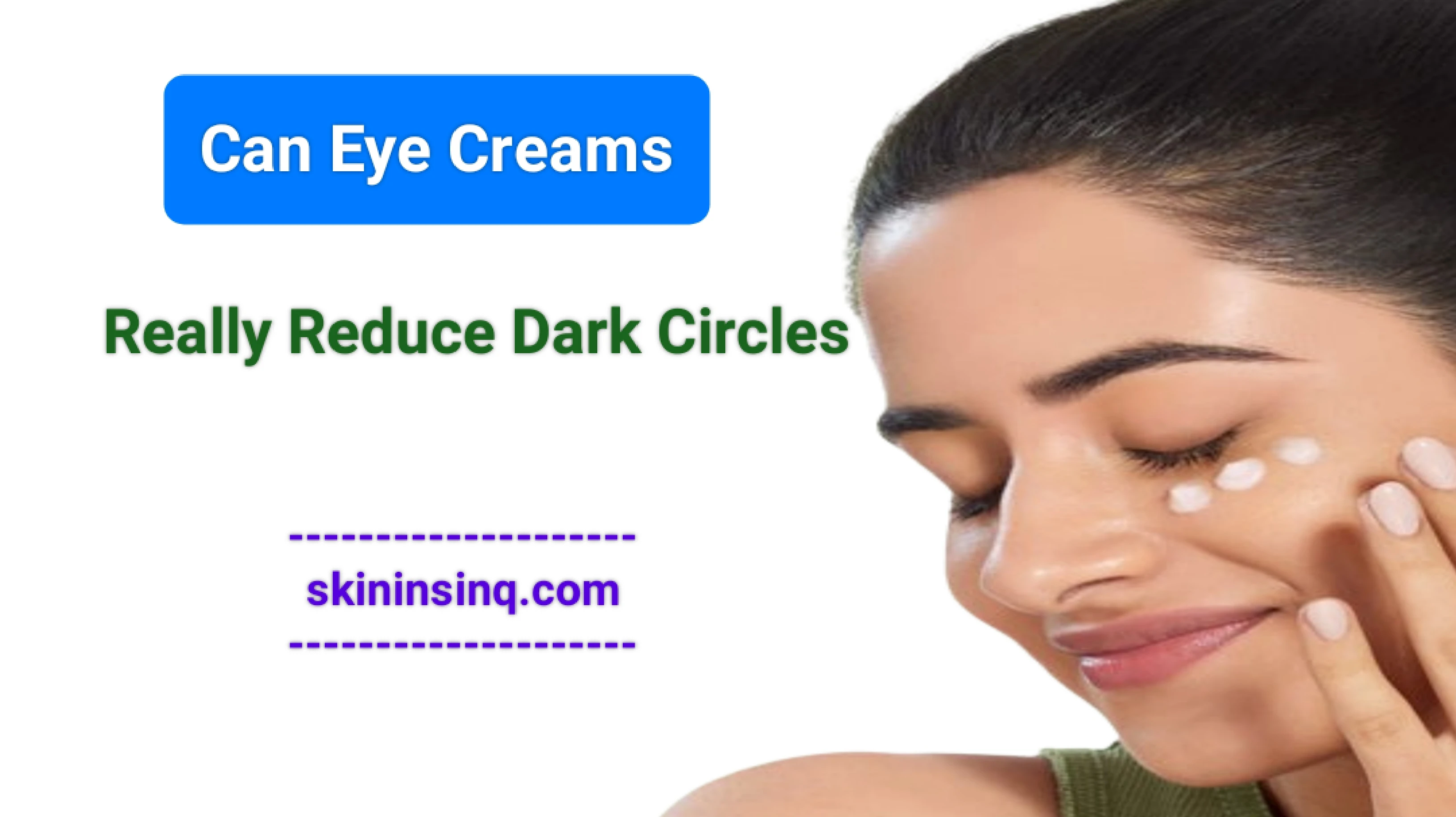Can Eye Creams Really Reduce Dark Circles? Separating Skincare Facts from Myths
Can Eye Creams Really Reduce Dark Circles? Separating Skincare Facts from Myths
Dark circles under the eyes are a persistent skincare concern for many people. From lack of sleep and genetics to allergies and aging, the causes are diverse — and so are the remedies. Eye creams are one of the most commonly marketed solutions, often promising to erase dark circles and restore brightness to tired eyes. But how effective are they really? Can eye creams truly reduce dark circles, or are the results more myth than reality?
The Truth About Eye Creams and Dark Circles
Eye creams are specially formulated to be gentle enough for the delicate skin around the eyes, which is thinner and more sensitive than the rest of the face. Many of these creams contain active ingredients designed to target specific under-eye issues, including puffiness, fine lines, and discoloration. However, the effectiveness of an eye cream depends on what’s causing your dark circles in the first place.
When Eye Creams Can Help
If your dark circles are caused by pigmentation or poor circulation, certain ingredients in eye creams may help improve their appearance over time. These include:
-
Vitamin C: A brightening antioxidant that can lighten hyperpigmentation and promote collagen production.
-
Niacinamide (Vitamin B3): Helps reduce pigmentation, improve skin elasticity, and strengthen the skin barrier.
-
Retinol: Stimulates collagen production and improves skin texture, which may reduce the appearance of dark blood vessels beneath thin skin.
-
Caffeine: Constricts blood vessels and reduces puffiness and redness, temporarily improving the look of dark circles.
-
Peptides: Help firm and strengthen the under-eye area, reducing shadows caused by skin laxity.
When used consistently, these ingredients can gradually enhance the under-eye appearance — but don’t expect overnight miracles. Results often take several weeks of regular use, and improvements may be subtle depending on the severity and underlying cause.
When Eye Creams Might Not Work
Unfortunately, eye creams are not a cure-all. If your dark circles are mainly due to genetics, bone structure, or deep-set eyes, topical treatments may offer limited results. For example:
-
Genetic hyperpigmentation may require more intensive treatments like chemical peels or laser therapy.
-
Hollow tear troughs or deep eye sockets cast shadows that no cream can erase — dermal fillers are a more effective solution in such cases.
-
Chronic conditions, such as eczema or allergies, might require medical treatment or lifestyle changes beyond skincare.
Myths vs. Reality
-
Myth: “Eye creams can completely eliminate dark circles.”
Reality: They can help reduce their appearance, but results depend on the cause and the formulation. -
Myth: “All eye creams are the same.”
Reality: Different ingredients target different concerns — choose one that matches your specific issue. -
Myth: “If an eye cream works, you’ll see results in days.”
Reality: Visible improvement usually takes several weeks of consistent use.
Conclusion
Eye creams can be a helpful part of your skincare routine, especially when dark circles are caused by pigmentation, dehydration, or poor circulation. However, they’re not a one-size-fits-all solution. Understanding the root cause of your under-eye darkness is key to choosing the right treatment. For stubborn or genetically inherited dark circles, professional options may be necessary for noticeable results.

Related Blog
What Causes Oily Skin and Can It Be Managed Naturally? Exploring Root Causes and Gentle Solutions
Aug 2, 2025 by Admin
General
What Are the Signs That You Have Sensitive Skin? Key Symptoms to Help You Identify This Delicate Skin Type
Aug 1, 2025 by Admin
General